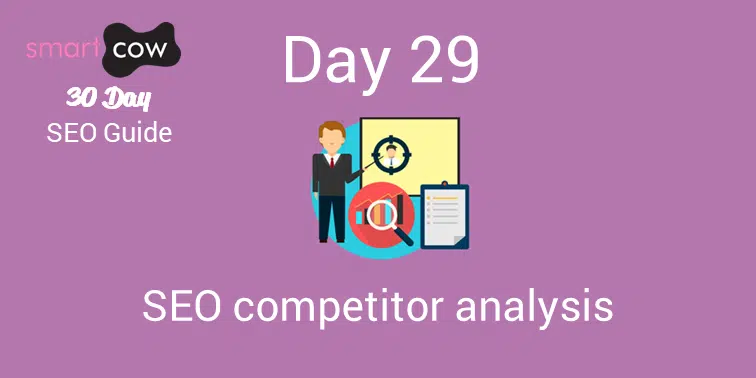For many professional services firms in London, having a marketing strategy in place will be key to growth. But, what’s one of the core digital marketing tactics that’s vital to stand out in this crowded marketplace?
Three simple letters – SEO! That’s Search Engine Optimisation. SEO is about implementing certain processes that make it better for a website to be found through search engines so that you rank higher in the Search Engine Results Pages (SERPs).
So, if you’re looking to grow your business then partnering with an SEO agency could be the answer. But what are some of the main points to consider when choosing your agency? Here’s some of key things that an SEO agency should be offering.
Optimise your content with keywords
Know who your website is targeted at: Before you start optimising, you need to understand your target audience. Your content should be tailored so that you are answering questions for that stereotypical client. The SEO agency should help you develop an online persona which incorporates goals and challenges of your target audience.
Create pillar pages: An important starting point for optimising your website is understanding what your pillar pages are. Know what your keywords are (usually phrases or longtail keywords, not just one word!), then ensure that you have relevant pages on your website. What we’ve found working with clients existing websites is that with small tweaks to the heading you already have the start of a pillar page. However, what’s key is that the URL is also the same as the heading so this may mean you have to change that which may lead to broken links. So, watch out for that.
Create a blog page: If you haven’t got a blog already then create one. Most people expect to see a blog on a website these days for interesting industry insight. For each blog post it is important to perform keyword research to ensure your accountant business is recognised in SEO. This is especially important for professional services such as an accounting firm as there’s always plenty of new updates to be shared with changes from HMRC for example. The reason it’s so good for optimisation is that by posting regularly each month you’re providing fresh content, which includes keywords, and this helps the search engine find you.
Don’t stuff it: But don’t cram your blog full of keywords. Search engines are very sophisticated and can decipher synonyms and longtail phrases. Ultimately the content needs to be quality, insightful and relevant to the reader.
Internal links: Adding relevant links within pages or blogs to other relevant pages on your website really helps navigation and engagement with visitors. Basically, you’re giving visitors tips on useful resources and similar topics.
Technical know how
A key part of optimising your accountant website is ensuring that you’ve completed as much as you can on the backend. This also has an impact on how search engines find you. Here’s some of our top pointers to implement that can really help kick start your technical SEO campaign:
Meta descriptions: This is the short paragraph that sits beneath the company name when you conduct a search online. By completing the meta description when you upload a post or page, you can create a short descriptive paragraph which includes keywords to help search engines and potential visitors. Meta descriptions are a website’s way of telling Google and other search engines exactly what each of your pages are about, what to display and how to display it in the results.
Alt tags: Complete the description of your image in the ‘Alt Tag’ box when you upload it to your website. You can be descriptive about what’s in the image but also relate back to a relevant keyword if you can.
Headings: Keywords should be incorporated into your pillar pages which talk about your services. But, can you add keywords to your blog title? If you can, then absolutely add keywords to your headings and subheadings. The h1 tag should contain information about the content of the page. Search engines check the keyword consistency between the header tag and the content on the rest of the page.
Is your website mobile friendly? Your website should already be built on CMS (Content Managed System), but that doesn’t mean it’s automatically mobile friendly. You may need to make some tweaks which an SEO agency should be able to action for you by installing plugins.
Site speed: This is another key area because people are likely to leave a website within 3-5 seconds if they can’t find what they’re looking for. Or, if the page doesn’t load fast enough. Again, an SEO agency can help you with this.
Link building
What you’re doing with your website design is building your domain authority by gaining trust and being a thought leader. As part of the ranking process, search engines consider the quality of links, awarding scores based on relevance. Less links will have an impact upon where you return in a search result for a given term.
Links can be from social media posts, or articles linking back to your website. Having information on a third-party directory with a link back to your website can also really boost your SEO campaign – think Yell, Bing, 192.com or Yelp.
But perhaps the finest example of a directory is Google My Business. So, if an agency has just created your website or you’re looking to improve your SEO on your current website, ask your SEO agency about creating this for you.
Populate Google My Business: This is a free tool to use and well worth the time and effort to complete. Google is one of the most popular search engines, so fill out as much about your company as you can. The very basics to complete are your website URL, opening times, address, contact number and email as well as a short paragraph about your company.
Google analytics: Setting up Google analytics will allow you to understand the demographics of visitors to your site and how long they stay. You can set this up yourself or work with an SEO digital marketing agency to help you.
Looking to grow your business?
Optimising your website will help create stand out and help you be found for your services. We are looking to improve SEO for accountants in London and provide SEO services for companies in Croydon. If you feel you need some support in getting your website Search Engine Optimised, then get in touch with us today and book a free consultation.


